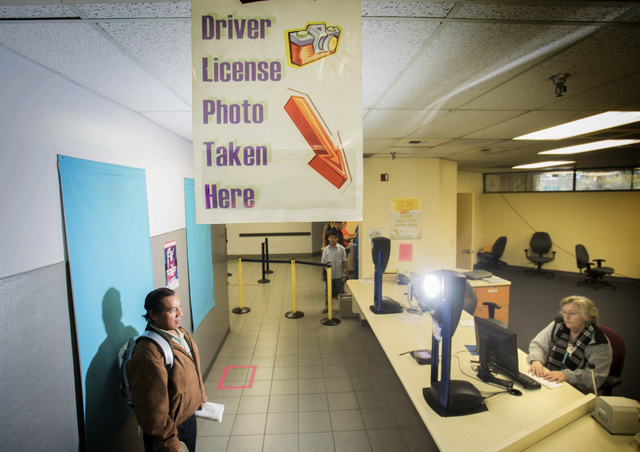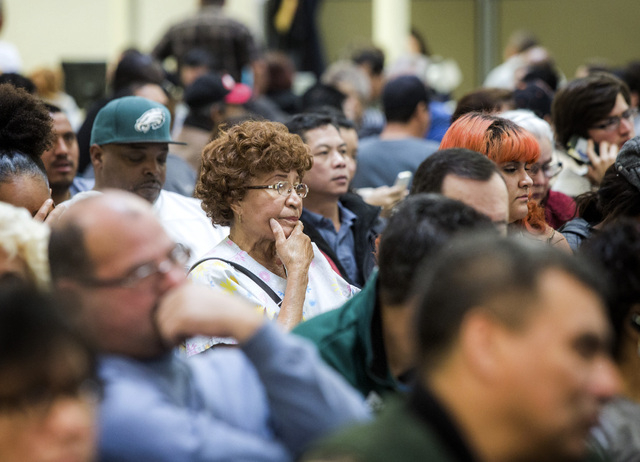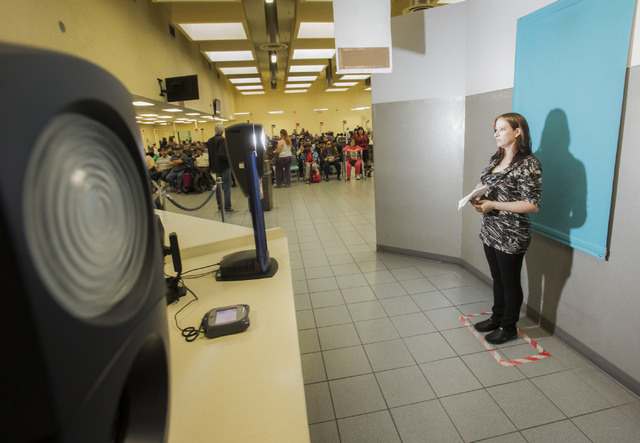Driving cards bring jump in potential Nevada DMV fraud cases




CARSON CITY — There has been a sigificant increase in the number of potential fraud cases coming from the Nevada Department of Motor Vehicles facial recognition system since the new driver authorization card has been available, the agency reported this week.
But it is too soon to have made any arrests or submitted any cases related to fraud coming from the authorization card program, said agency spokesman Kevin Malone.
The driving cards, approved by the Legislature and Gov. Brian Sandoval in the 2013 legislative session, allow Nevada residents who are not U.S. citizens to legally drive in the state. The impetus for the new law is traffic safety.
“What I can say is that we have seen a bump in the number of potential cases coming from the facial recognition system,” he said.
The Southern Nevada DMV Fraud Unit identified 32 records requiring investigation from Jan. 6 to Jan. 13. Of that total, 24 are related to the driving card program and eight are related to other programs.
Prior to the driving card being offered starting Jan. 2, the total number of facial recognition referrals ran about 30 a month, Malone said.
These potential fraud cases are law enforcement investigations that take time, he said.
A case has to be assigned to an investigator first. The investigator then has to develop the case by examining evidence and questioning the individuals.
The cases can take time because the DMV has a limited number of sworn staff to investigate each case. The cases might involve documents such as birth certificates or passports that must be verified. Often there are victims of identity theft who must be located and who must make written statements.
An investigation resulting in a criminal or administrative charge must stand up in any court proceedings. The cases are typically prosecuted by a district attorney.
The driver authorization card cases will be handled in exactly the same manner as other ID fraud cases. Cases may or may not result in an arrest or prosecution. The DMV does not seek deportations in cases involving immigration status, Malone said. Deportation decisions are made by federal authorities based on the severity of the crime or an individual’s past history.
The typical number of arrests or arrest warrants pursued by the DMV is about three a month, Malone said.
From Jan. 2 through Jan. 14, 1,132 driver authorization cards were issued, with another 573 instruction permits issued to teenage drivers.
In that same time frame there were 5,313 written tests administered for driving card applicants with a failure rate of 66 percent. Another 943 driving skills tests were administered with a passing rate of 75 percent.
Malone said facial recognition is part of the DMV’s central issuance license system where licenses are made in one secure facility and mailed to the applicants.
Each night, the system compares all of the license or ID photographs taken that day with all of the existing photographs in the Nevada DMV database.
The system typically turns up more than 100 potential matches each day. The photos are displayed side-by-side as a DMV technician goes through them each day. Most are obviously different people and they are cleared.
But some will reflect a person with multiple identities, Malone said. There can also be cases where multiple people have used one identity. The technician will refer cases that look like a match to the Compliance Enforcement investigators.
The Compliance Enforcement Division Fraud Unit, formed in 2003, investigates cases from DMV front-counter technicians and other sources such as the facial recognition system.
Malone said facial recognition is a valuable tool for law enforcement. People who commit identity theft or fraud are almost always committing other crimes.
In an April 2009 report on the newly implemented facial recognition system, the DMV said arrests in Southern Nevada nearly doubled in the first quarter of that year compared to 2008. There were 29 arrests in the 2009 quarter compared to 13 in 2008.
Malone said the number of arrests has tapered off since 2009.
Contact Capital Bureau reporter Sean Whaley at swhaley@reviewjournal.com or 775-687-3900. Follow him on Twitter @seanw801.












